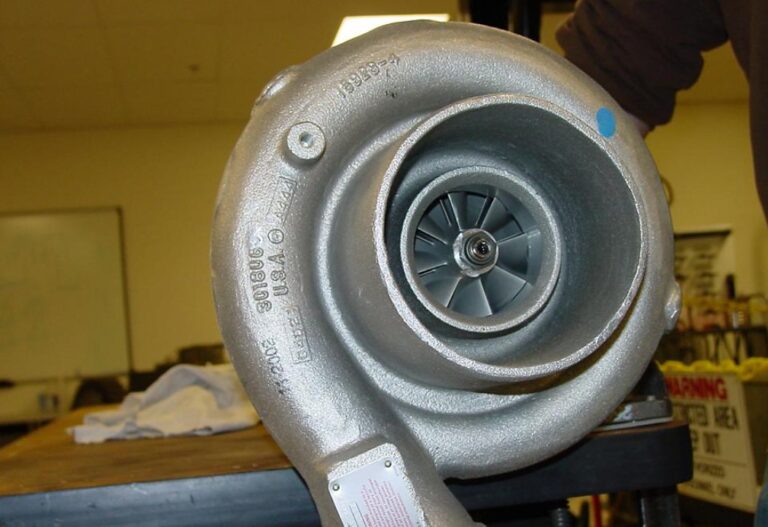Can You Use Starting Fluid On A Propane Engine? Answered
This article delves into the specific question: Can You Use Starting Fluid On A Propane Engine? We’ll explore the nuances of using starting fluids in propane engines, offering insights and guidelines for optimal engine care. Understanding the compatibility of starting fluids with different engine types is crucial for maintaining engine health and ensuring safety.
Key Takeaways
- Starting fluid usage in propane engines requires caution due to potential risks.
- Alternative methods for starting propane engines are recommended.
- Understanding the chemical composition of starting fluids is essential.
- Regular maintenance is key to avoiding the need for starting fluids.
Can You Use Starting Fluid On A Propane Engine?
No, it is generally not recommended to use starting fluid on a propane engine. Propane engines are designed to start efficiently without the need for additional aids like starting fluids, and using such fluids can lead to potential risks, including damaging engine components and creating safety hazards.

Understanding Propane Engines and Starting Fluids
The Basics of Propane Engines
Propane engines are widely recognized for their clean-burning properties and efficiency. They are commonly used in various applications, from vehicles to generators. Unlike traditional gasoline engines, propane engines operate on liquefied petroleum gas (LPG), which has distinct characteristics and requirements.
The Role of Starting Fluids
Starting fluids, often ether-based, are designed to aid in starting an engine in cold conditions. They work by creating a highly volatile and combustible environment within the engine’s cylinders, facilitating easier ignition.
However, their chemical composition can be harsh on engine components, especially in engines not designed for such fluids.
Risks and Concerns
- Potential Damage: Starting fluids can be too aggressive for propane engines, leading to wear and tear on engine components.
- Safety Hazards: The highly combustible nature of starting fluids can pose a risk of backfires or explosions, especially in a closed system like a propane engine.
Alternatives to Starting Fluids in Propane Engines

Regular Maintenance
Regular maintenance is the key to ensuring that a propane engine starts smoothly without the need for starting fluids. This includes routine checks and replacements of spark plugs, and filters, and ensuring proper fuel quality.
Troubleshooting Starting Issues
If a propane engine is having trouble starting, it’s important to troubleshoot the issue rather than resorting to starting fluids. Common issues might include problems with the ignition system, fuel supply, or battery.
The Chemical Composition of Starting Fluids
Understanding the chemical makeup of starting fluids helps in appreciating why they might not be suitable for propane engines. Typically, these fluids contain ether, which is highly volatile and can be aggressive to engine components not designed for such exposure.
Impact on Propane Engines
The use of ether-based starting fluids in propane engines can lead to premature wear and tear. It’s crucial to understand the compatibility of chemicals with your engine type to avoid long-term damage.
Regular Maintenance: A Preventative Approach
Emphasizing regular maintenance can significantly reduce the need for starting fluids in propane engines. This includes:

- Spark Plug Care: Ensuring spark plugs are clean and functional.
- Fuel System Maintenance: Regular checks and cleaning of the fuel system to prevent blockages.
- Battery Health: Keeping the battery in good condition, especially in colder weather.
In-depth exploration of Starting Fluids and Propane Engines
In the first part of our guide, we discussed the general advisability against using starting fluids in propane engines, focusing on the risks and the importance of regular maintenance.
In this continuation, we delve deeper into specific aspects of propane engine care, and alternative solutions, and address frequently asked questions to provide a comprehensive understanding of this topic.

Advanced Troubleshooting for Propane Engines
When a propane engine faces starting issues, it’s crucial to adopt a systematic approach to troubleshooting. This ensures that the root cause is identified and resolved without resorting to quick fixes like starting fluids.
Electrical System Check
The electrical system is often the culprit in starting issues. A thorough check should include the battery, starter motor, and ignition switch. Ensure all connections are secure and free of corrosion. A weak or dead battery is a common issue, especially in colder weather.
Fuel System Inspection
Propane engines rely on a consistent and clean fuel supply. Check for any blockages in the fuel lines and ensure the fuel tank is free of contaminants. Regularly replacing fuel filters can prevent many starting issues related to the fuel system.
Safe Starting Practices for Propane Engines
Adopting safe starting practices is crucial, especially in colder climates where engines are more prone to starting difficulties.
Pre-Heating Techniques
In cold weather, pre-heating the engine can facilitate easier starts. This can be done using block heaters or other safe heating methods. These techniques warm up the engine gradually, reducing the strain on the engine during ignition.
Battery Maintenance in Cold Weather
Batteries tend to lose efficiency in cold weather. Keeping the battery fully charged and ensuring its health can prevent starting issues. Consider using a battery maintainer during prolonged periods of inactivity.
Long-Term Care and Maintenance of Propane Engines
Long-term care is essential for the longevity and efficient operation of propane engines. This involves more than just regular checks and balances; it requires a proactive approach to maintenance.
Regular Professional Inspections
Regular inspections by a professional can help identify issues before they become major problems. These inspections should cover all aspects of the engine, including the electrical and fuel systems, as well as the engine’s overall condition.
Updating and Upgrading Components
As propane engines age, certain components may need updating or upgrading. This could include newer, more efficient spark plugs or upgrading the ignition system. Keeping the engine up-to-date ensures it operates at peak efficiency.
Which Engines Should Not Be Used In Combination With Starting Fluid?
Certain types of engines are particularly unsuitable for the use of starting fluid, primarily due to their design and operational characteristics. Understanding these limitations is crucial for maintaining engine health and safety.

Diesel Engines with Glow Plugs
Diesel engines equipped with glow plugs should not use starting fluid. Glow plugs are designed to pre-heat the air in the combustion chamber, aiding in diesel fuel ignition. Introducing starting fluid into this system can cause pre-ignition or even an explosion due to the highly combustible nature of the fluid.
Small Two-Stroke Engines
Two-stroke engines, often found in lawn equipment and some motorcycles, are also not suitable for starting fluids. These engines rely on a precise mixture of oil and fuel for lubrication. Starting fluids can disrupt this balance, leading to insufficient lubrication and potential engine damage.
Engines with Advanced Fuel Injection Systems
Modern engines with advanced fuel injection systems, particularly those with direct injection technology, should avoid starting fluids.
These systems are precisely calibrated for specific fuel characteristics. Starting fluids can disrupt the injection process, potentially leading to improper fuel delivery and engine damage.
Is Starting Fluid Bad For Small Engines?
The use of starting fluid in small engines is a topic of debate, but generally, it is advised to use it with caution or avoid it altogether. The reasons are rooted in the operational dynamics of these engines.
Potential for Overuse and Damage
Small engines, such as those in lawn mowers or snowblowers, are often more susceptible to damage from starting fluids.
Overuse of starting fluid in these engines can lead to excessive wear and tear. The ether in starting fluids can wash away oil from the cylinder walls, leading to reduced lubrication and increased friction.
Alternative Starting Methods
For small engines, alternative starting methods are usually safer and more effective. Ensuring proper maintenance, such as regular oil changes, spark plug checks, and using fresh fuel, can often negate the need for starting fluids. In cold weather, simply allowing the engine to warm up before starting can be a more engine-friendly approach.
Will Starting Fluid Damage Gas Engine?
The use of starting fluid in gas engines is a topic that requires careful consideration. While starting fluid can be beneficial in certain situations, it also carries risks that could potentially damage a gas engine.

Risks of Using Starting Fluid in Gas Engines
Starting fluid, typically composed of ether, is highly volatile. When used in gas engines, particularly those not designed for its use, it can cause several issues.
The most significant risk is the potential for detonation or “knocking.” This occurs when the starting fluid ignites too early in the combustion cycle, which can lead to increased pressure and temperature inside the engine, causing damage to engine components like pistons and bearings.
Impact on Lubrication
Another concern is the impact on lubrication. Starting fluids can wash away the oil film on cylinder walls, leading to increased friction and wear. This is particularly problematic in older engines or those with high mileage, where the protective oil film is crucial for the engine’s smooth operation.
Can You Spray Ether In A Gas Engine?
Spraying ether into a gas engine is a practice that is often debated among mechanics and automotive enthusiasts. While it can provide a temporary solution in some scenarios, it is not generally recommended.
Short-Term Solution with Long-Term Risks
Ether can assist in starting a gas engine, especially in cold conditions or when the engine is having trouble starting. However, it’s a short-term solution that comes with long-term risks.
Frequent use of ether can lead to the issues mentioned earlier, such as engine knocking and lubrication problems. It can also degrade rubber and plastic components in the fuel system over time.
Manufacturer Recommendations
It’s essential to consider the manufacturer’s recommendations for your specific engine. Many modern engines are designed with precise fuel and ignition systems that may not be compatible with the use of ether. In such cases, using ether can void warranties or lead to costly repairs.
Is Starting Fluid Bad For Gas Engines?
Starting fluid, when used in gas engines, can be both beneficial and detrimental. The key is understanding when and how to use it appropriately.
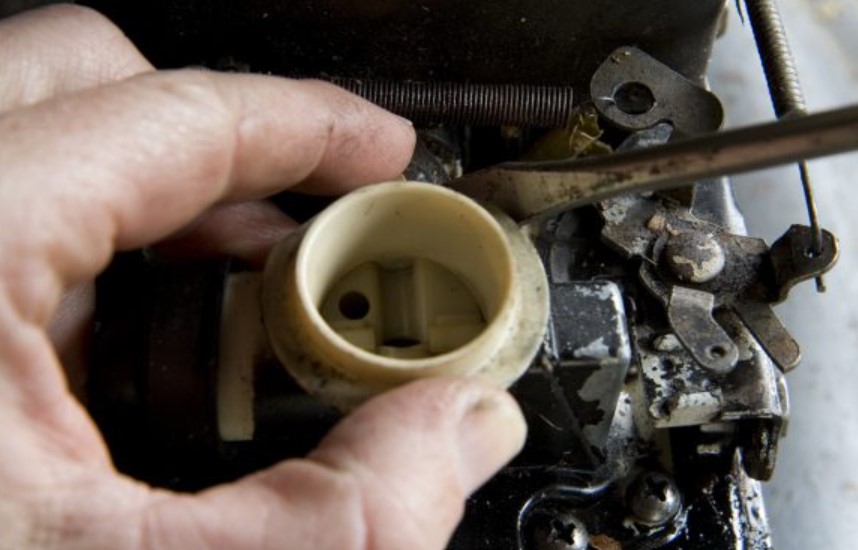
Situational Use
In situations where a gas engine is struggling to start, particularly in cold weather, a small amount of starting fluid can help. However, this should be done sparingly and with caution. The engine should be in good mechanical condition, and the use of starting fluid should not be a regular occurrence.
Potential for Damage
The primary concern with starting fluids in gas engines is the potential for internal damage. Overuse can lead to the problems discussed earlier, such as premature wear due to reduced lubrication and the risk of detonation. These issues can shorten the engine’s lifespan and lead to expensive repairs.
Best Practices
The best practice is to maintain the engine properly to avoid the need for starting fluids. Regular maintenance, including spark plug checks and fuel system upkeep, can often prevent starting issues. If starting fluid must be used, it should be done according to the manufacturer’s guidelines and as infrequently as possible.
Conclusion
In conclusion, while it might be tempting to use starting fluid on a propane engine, especially in challenging starting conditions, it’s generally not advisable.
The risks and potential damage outweigh the temporary benefits. Instead, focus on regular maintenance and proper troubleshooting to keep your propane engine running smoothly. Remember, the key to longevity in propane engines lies in understanding their unique needs and catering to them with the right care and products.
Top FAQ’s
Can cold weather affect propane engine starting?
Yes, cold weather can impact propane engine starting. Propane, by nature, has a high vaporization point, which can make starting engines in cold conditions more challenging. Pre-heating the engine and ensuring a healthy battery can mitigate these issues.
Is it safe to manually ignite a propane engine if it doesn’t start?
Manually igniting a propane engine is not recommended. This can be dangerous and may damage the engine. It’s better to troubleshoot the electrical and fuel systems.
How often should propane engine fuel filters be changed?
Fuel filters in propane engines should be changed regularly, typically every 500 hours of operation or as recommended by the manufacturer. Regular changes prevent blockages and maintain fuel flow efficiency.
Can a propane engine be converted to run-on gasoline?
Converting a propane engine to run on gasoline is possible, but it requires significant modifications. It’s important to consult with a professional to understand the implications and changes needed.
What are the environmental benefits of using propane engines?
Propane engines are known for their environmental benefits. They emit fewer pollutants compared to gasoline or diesel engines, making them a more eco-friendly option.

Welcome to the exhilarating world of Matt Rex, a professional car racer turned renowned vehicle enthusiast. Immerse yourself in his captivating blog as he shares heart-pounding adventures, expert reviews, and valuable insights on cars, trucks, jets, and more. Fuel your passion for speed and discover the beauty of vehicles through Matt’s engaging stories and meticulous expertise. Join the ever-growing community of enthusiasts who find inspiration and expert advice in Matt Rex’s blog—a digital hub where the thrill of speed meets the pursuit of knowledge.


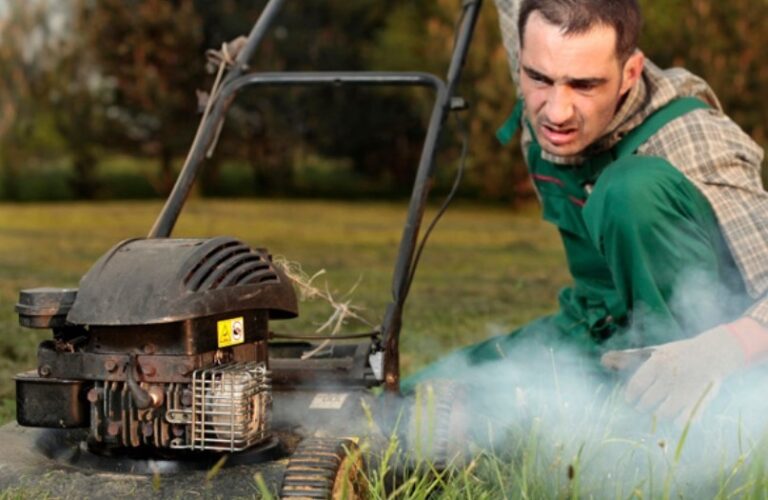
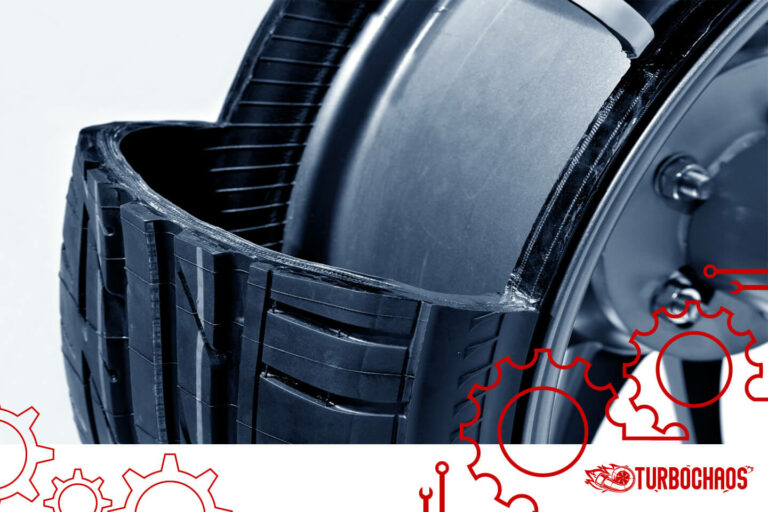

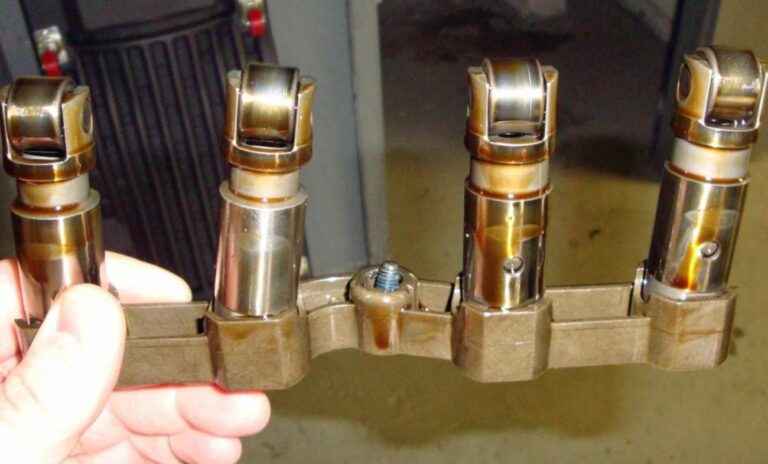
![What Trucks Does Nyjah Use? [Answered]](https://www.turbochaos.com/wp-content/uploads/2023/12/What-Trucks-Does-Nyjah-Use-768x491.jpg)
